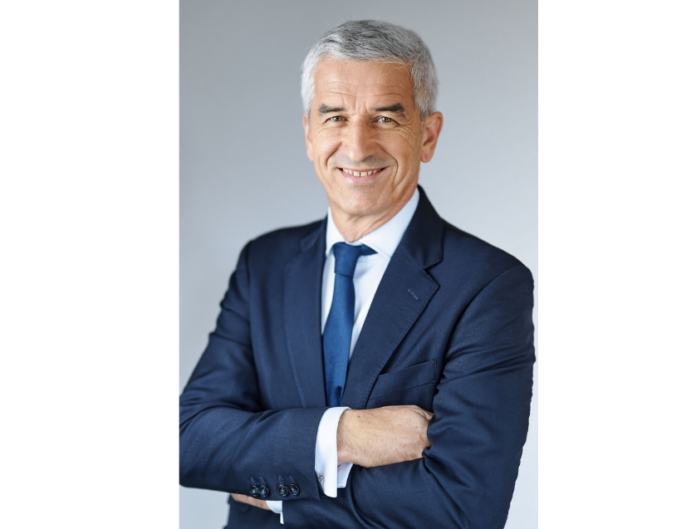Bildnachweis: Invest Europe.
The test of an industry’s true worth comes not in the good times, when favourable conditions act as a tailwind for all businesses; rather, it comes when the clouds gather and intense pressures separate the extraordinary from the ordinary.
After economic recovery and investment growth fuelled by stimulus and low interest rates in 2021, the past year was marked by uncertainty, volatility and geopolitical tensions – both globally and at home in Europe. Few could have expected European venture capital to set new records, but that is exactly what the industry did in 2022. European venture capital fundraising grew by 13% to EUR 23 billion in 2022 from an already record level in 2021, according to Invest Europe’s Investing in Europe: Private Equity Activity 2022 report.
World-class ecosystem
The reasons for this stellar growth are clear. European venture capital has developed into a world-class ecosystem. It is generating returns that not only consistently outperform listed equity benchmarks, but also match or exceed those of North American venture funds. This quality is attracting increasing levels of investment from both domestic European investors and international sources. Funds raised from North American investors accounted for almost 10% of last year’s total, while the proportion of capital from Asia and Australia increased by two thirds.
New record highs in 2022
Returns are not just a financial metric, but also a measure of realworld innovation, business development, and economic growth. They are created by investments in dynamic and fast-growing start-ups that are helping to reshape Europe and the world for the better. Compared to the record levels achieved in the buoyant conditions of 2021, European venture capital investment declined in 2022, but remained almost 50% above the average of the last five years. It is also important to note that both start-up and seed-stage investment increased to new record highs in 2022, with the dip in deployment confined to later-stage venture. The longer-term step change in investment mirrors the growth in fundraising, with venture capital investment more than double the level of five years ago, and almost six times the level of a decade ago.
Strong talent base in Europe
On a regional basis, our data show that the DACH region is punching its weight in the venture space. Investment across the region totaled EUR 4.5 billion in 2022, second only to the France and Benelux region, which saw EUR 5.3 billion invested, and ahead of the UK and Ireland region with EUR 3.8 billion. The message coming through loud and clear is that entrepreneurs across Europe are continuing to innovate in key industries, such as tech, deeptech, and biotech and healthcare, and are securing the venture capital funding to launch and take their companies to the next level. Yet while Europe has a strong talent base and an expanding universe of growth companies that are the lifeblood of the economy, the continent may be missing out on successfully commercialising and scaling innovation due to a lack of capital available at certain critical stages of development. In recent comments to the Financial Times, Dr Klaus Hommels, Invest Europe’s outgoing Chair and founder of venture capital firm Lakestar, argued that without more later-stage funding, governance is exported to where money comes from. The challenge is not just for the headline-grabbing unicorns, but also for the disruptive companies that are gaining traction and need investment to scale up.
Opportunities for more capital
Turning our focus back to the fundraising data, we see that pension funds, which accounted for a third of all private equity fundraising in 2022, were responsible for 6% of venture capital fundraising. Insurance groups also accounted for 6% of venture capital fundraising, compared to 12% for growth funds and 10% for all private equity. While Europe has some of the largest pools of pension fund capital in the world, the industry lags behind North America in its commitment to private markets in general and venture capital in particular. More flexible regulation and structures can incentivise these funds to invest in the continent’s home-grown start-ups. The reform of Solvency II presents another opportunity to unlock more capital. The creation of a long-term equity category for insurers in 2019 has not reached its potential as the regulation continues to create unnecessary costs and barriers to investment in private equity and venture capital. Discussions on changing the rules are ongoing. Improving the conditions for the continent’s pension funds and insurers to invest more in venture capital could be a game changer, especially as the start-ups at the forefront of Europe’s green revolution and sustainable future are facing unprecedented demands to follow the capital overseas.
Venture Capital offers job creation power
Keeping innovative companies in Europe will not only strengthen our technological sovereignty – it will also have a direct effect on developing talent and new jobs. Invest Europe’s Private Equity at Work report illustrates just how influential European venture capital has been for job creation. Our most recent study for 2021 shows that venture capital firms were responsible for over 85,000 new jobs, representing a 25% growth in employment – far in excess of the 1.2% achieved across all European businesses. This job creation power should stand European start-ups in good stead for current and future challenges. Looking at the data from another angle, we see that SMEs – the core of the venture capital investment universe – are making a significant contribution to talent today in the sectors that will make a substantial difference to the world tomorrow. The ICT sector generated 18% more jobs in 2021, biotech and healthcare added 15% more, and employment in the chemicals and materials sector increased by 13%. That employment is not only in large cities, but also in more rural communities that can see a huge boost from venture capital investment. For example, Western Transdanubia in Hungary recorded a 39% increase in SME jobs in 2022, Connacht in Ireland registered a 22% increase in employment, and Saarland in Western Germany saw a 14% rise.
Conclusion
The above illustrates the virtuous cycle of fundraising, investment, development, and growth – as well as how that benefits Europe’s economy and society. The performance of European venture capital in 2022 provides a glimpse of what the industry has achieved and the potential it still has to unlock. The continent has produced many outstanding innovators and is supported by leading research institutions and world-class universities. More flexible rules and incentives for large institutional investors could enable them to contribute more to dynamic start-ups, strengthening Europe’s position in key industries and developing more home-grown talent and employment opportunities.
About the author:
Eric de Montgolfier is CEO of Invest Europe, the association representing Europe’s private equity, venture capital, and infrastructure sectors, as well as their investors.





